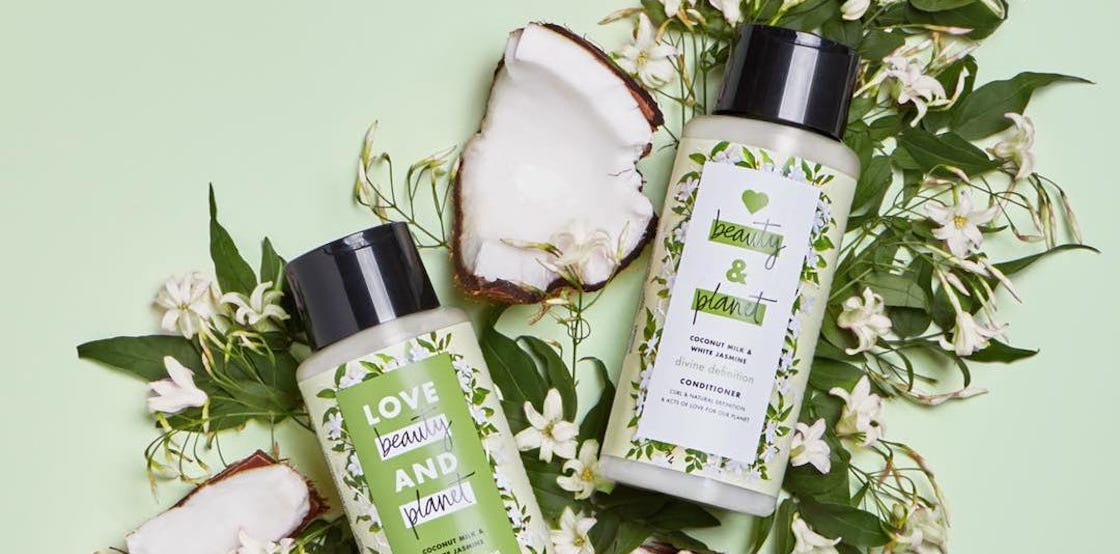With the holiday gifting season around the corner, brands like Love Beauty and Planet are trying to find creative ways to encourage earlier shopping.
Though supply chain concerns dominate the holiday shopping conversation, there is also a significant environmental and human toll that comes with rush shipping. On Wednesday, Love Beauty and Planet will encourage shoppers to reduce the impact of rush shipping emissions by asking them to sign a pledge called “Plan It for the Planet.” Love Beauty and Planet launched in Jan. 2018 as Unilever’s environmentally-friendly personal care brand, The pledge is to shop before Dec. 4, a week before retail partners like Target shift to rush shipping for the holidays.
Love Beauty and Planet worked with Dr. Josué C. Velázquez Martínez, director of the sustainable logistics initiative at MIT, to determine that, on average, rush shipping produces approximately 40% more carbon emissions than ground shipping. By shopping before Dec. 4, consumers can save 2.4 million tons of carbon emissions — the equivalent of planting over 40 million trees. To encourage spreading awareness ahead of Dec. 4, Love Beauty and Planet will donate to the National Forest Foundation $19.99 (the average value of rush shipping) for every use of the hashtag #PlanItforthePlanet, up to $150,000. This will support the planting of 150,000 trees in the U.S.
“We try and make [our environmental messaging] light and easy and don’t want to guilt-trip consumers, because it doesn’t work for them. Our job is to keep trying to break down some of these hard facts for them,” said Sonika Malhotra, global brand director for Love Beauty and Planet.
This is not the first time Love Beauty and Planet has used the holiday season to highlight the environmental effects of the holiday shopping period. In Dec. 2019, the brand published a full-page ad in the New York Times calling out beauty’s sustainability problem, which doubled as recyclable wrapping paper. Other brands have also slowly started to confront holiday consumption in their own ways. But talking about over-consumption and waste is a tricky line for brands to walk, given that their business models are founded on selling products. Deciem has shut off its DTC website and closed its stores on Black Friday since 2019 as a symbolic form of protest. Love Beauty and Planet does not have DTC e-commerce and therefore requires a different approach. However, pledge information and creative assets are displayed on its website and social channels, including Facebook and Instagram.
“A lot of consumers think about the environment, particularly our younger consumers, but they’re also the ones who are [the most] obsessed with immediate gratification and impulse buying,” said Malhotra. “We don’t want them to stop shopping. But if they were a bit mindful of it, they could make a difference to the planet.”
Malhotra said the campaign is designed to be environment-focused but could act as a “double win” if an unintended side effect is reduced stress on the supply chain, which will be exasperated by rush shipping. According to an August Gallup poll, 60% of U.S. adults say they were unable to get a product they wanted between June and July because of shortages. Fifty-seven percent experienced significant delays in receiving a product they ordered.
Ad position: web_incontent_pos1
“The pandemic has revealed the vulnerabilities and fragilities in global supply chains across most, if not all, sectors and industries,” said Jim Lee, partner in the distribution sector and global business services at IBM Institute for Business Value.
Alan Jope, CEO of Unilever, said on the company’s third-quarter earnings call on Oct. 21 that supply chain disruption is expected to last into at least the first half of 2022. But Unilever has shown the resiliency necessary to keep products consistently on the shelf, he said. Unilever managed to keep its most popular products in its top 10 markets on the shelf 96% of the time. That goes for all of its brands.
According to Unilever’s third-quarter 2021 earnings, the Beauty & Personal Care unit, which houses Love Beauty and Planet, grew sales by 2.6% to approximately $18 billion. Deodorants, skin care and hair care all grew, as Unilever increased its pricing and saw unit sales increase in many countries. Jope applauded Love Beauty and Planet during the call for the launch of its fully biodegradable shampoo formula.
Because Love Beauty and Planet is trying to trigger a significant shift in consumer behavior, evaluating the success is a more nebulous task. Malhotra said that Unilever brands often engage in dipstick surveys by asking customers what they took away from the campaign and whether they understood its objectives. More tangibly, Love Beauty and Planet can also evaluate the awareness of the campaign via hashtags, its success in reaching the $150,000 donation ceiling, and the sentiment analysis of social media comments and customer service emails.




